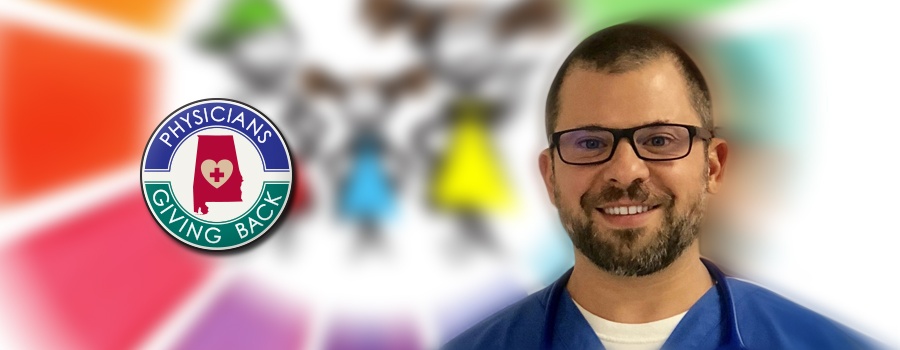FORT PAYNE – It’s not uncommon for physicians to have an unusual path to medicine. Like many professionals, not all physicians start out wanting a career in medicine but someone – or something – along the way changed their minds. That’s what happened to Fort Payne pediatrician Peter Strogov. It happened on the one day that changed the world forever.
After graduating from high school, Dr. Strogov admitted to having “absolutely zero direction” and no idea what he wanted to do with his life. He worked construction, painting, or as he put it, “everything under the sun,” before he decided to go back to school at his local community college. Headstrong and determined, his intent was to graduate and transfer to one of the most competitive four-year colleges in the country.
“The administrators told me right out of the gate that I was crazy,” he laughed. “They said nobody ever transfers to those top schools from here, but I became the first person to ever transfer to Harvard from my community college.”
At Harvard, Dr. Strogov completed his degree in economics and thought he had found his calling in the world of finance. That all changed on Sept. 11, 2001.
“My wife and I just started volunteering around the Twin Towers to help with water and food. We were really involved in the recovery efforts. During that time, reflecting on what life’s about, I found the pursuit of economics, finance and money to be actually very unimportant,” he said.
He was soon looking for a different path and found it in medicine. But finding a specialty would prove challenging.
“I was 100 percent sure I was going into surgery, without question. But something clicked when it came time for his obstetrics and pediatrics rotations, and Dr. Strogov finally found his calling.
“I love empowering parents and building rapport with them,” Dr. Strogov said. “I’m such a kid at heart that just working with kids to me is like the ultimate in not going to work every day. I get to come to work and play with kids and make them feel better. What’s a better day than that?”
Empowering parents is also part of his business model at Fort Payne Pediatrics. The clinic nestled in the heart of DeKalb County has continued to grow to a point at which a new facility is necessary and with it will come some much needed and wanted TLC for patients and their families as well. The clinic already hosts an asthma clinic, which has been tremendously successful and has opened the door for so much more such as Dr. Strogov’s Infant Safety Initiative, Diabetes Prevention initiative, and nutrition and lifestyle modification initiatives. Dr. Strogov and his staff are beginning with the basics, such as car seat safety classes and SIDS education, while future plans include a community garden and educational initiatives to improve the lifestyle of not only pediatric patients, but the community at large.
“When we move over to our next facility, we’re going to have a conference room where we can have educational classes and health fairs. We’ve already decreased ER visits from our asthmatic patients in one year. Our ER admission rates and visit rates have dropped dramatically for asthma patients because they’re much better controlled, they’re much more compliant with medications, and they understand the disease process better, so we know our education model is working. “Think what we can do for obesity if we expand this education model to a lifestyle modification clinic using the same principle?” Dr. Strogov asked. “We can educate patients and parents about nutrition, exercise and the detrimental health effects of obesity. We can track patients weight and lifestyle choices a little bit more closely and finally give the patients and families small goals to achieve while encouraging them as much as possible to reach each of those goals?”
His energy is contagious, which is just one reason why he was chosen as Alabama’s 2018 Community Star to help celebrate National Rural Health Day 2018 by the National Organization of State Offices of Rural Health.
“We have really been pushing hard this past couple of years to reach out in the community and do more than just see patients. We have created partnerships in other communities to give providers ownership in clinics in rural communities. Our clinic in Fort Payne is the largest, but we have four, and we’re starting to spread our practice model around hoping we can continue to grow to cover as many rural areas as we can with at least one physician and a nurse practitioner or two in each location. It’s not easy, but we’re trying to recruit more physicians to Alabama in these rural north Alabama areas. We’ve got great hope for the future.” he said.
